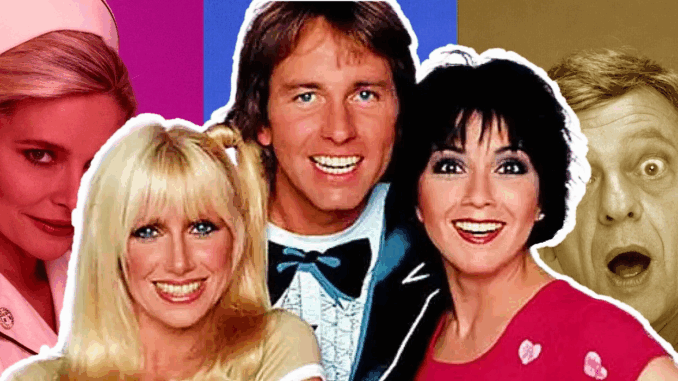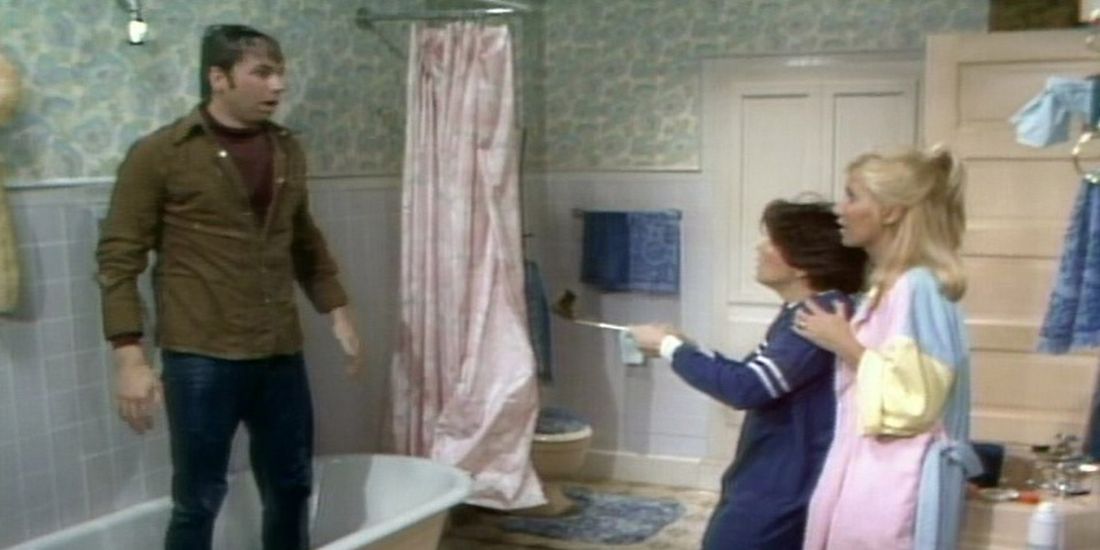
As Three’s Company marks its 48th anniversary, fans and historians alike are revisiting how the beloved sitcom originally evolved—and how it continues to inspire community events and pop culture nostalgia even today.
A Pilot That Looks Nothing Like the Show We Know
The original pilot of Three’s Company featured entirely different characters: John Ritter played David, not Jack Tripper, while Jenny and Samantha—portrayed by Valerie Curtin and Susanne Zenor—preceded the later roles of Chrissy and Janet. The now-iconic theme song was absent, and the tone was markedly more experimental. This unaired intro was unearthed and shared in celebration of the show’s debut on March 15, 1977, providing fans with a rare glimpse of its initial concept before the British adaptation influenced the final version.
Legacy of Suzanne Somers and the Cast
Suzanne Somers, who embodied Chrissy Snow from seasons one through five, left the series following a high-profile salary dispute—an event that ultimately affected the show’s trajectory. Her departure triggered cast changes and controversies, making her storyline as influential offscreen as it was onscreen. Somers has since pitched ideas for a reboot, including one featuring a hologram of co-star John Ritter; however, those concepts were reportedly declined by Ritter’s family.
Meanwhile, Three’s Company alum Joyce DeWitt (Janet Wood) has since honored John Ritter’s legacy by appearing at events supporting the John Ritter Foundation for Aortic Health. In recent years, DeWitt and Priscilla Barnes reunited publicly at a gala event, reaffirming the deep bonds shared among former cast members and their enduring attachment to the show.

Fans Still Get the Party Started
The sitcom continues to resonate with devoted viewers—and not just on screen. Across the U.S. and Canada, fans participate in “Mrs. Roper Romps”—street parades where attendees dress as Helen Roper in red wigs and caftans. These grassroots celebrations reflect a joyous and communal nostalgia rooted in the sitcom’s distinctive ‘70s vibe.
Continuing Cultural Impact
Though Three’s Company ended in 1984, its cultural footprint has survived through syndication, nostalgia parties, and DIY online communities. On Reddit, long-time viewers frequently report re-watching the full series multiple times—some even hosting private marathon watch parties. One fan wrote, “I bought the complete series on DVD twice … now I stream them on a Plex server,” while another described daily viewings while exercising.
Why It Still Matters
Beyond the laughs and misunderstandings, Three’s Company offered a comedic safe haven to countless viewers during tough times. Joyce DeWitt said that for many, the show served as “the only safe haven” during childhood or adolescence—demonstrating how sitcoms can resonate on deeper emotional levels decades later.